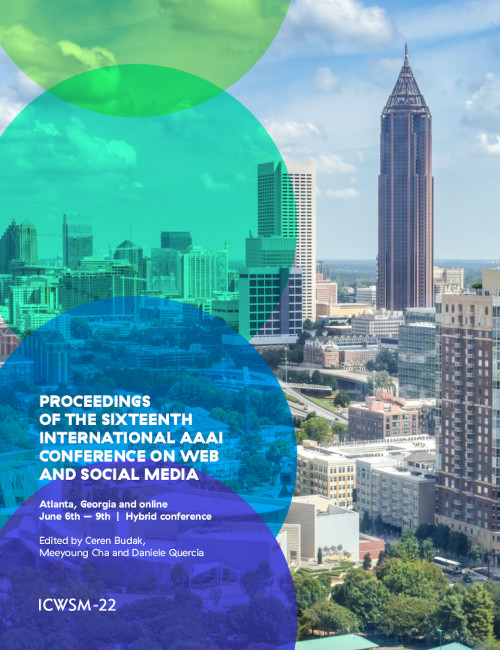Community-Based Fact-Checking on Twitter’s Birdwatch Platform
DOI:
https://doi.org/10.1609/icwsm.v16i1.19335Keywords:
New social media applications; interfaces; interaction techniques, Credibility of online content, Trust; reputation; recommendation systems, Qualitative and quantitative studies of social mediaAbstract
Misinformation undermines the credibility of social media and poses significant threats to modern societies. As a countermeasure, Twitter has recently introduced "Birdwatch," a community-driven approach to address misinformation on Twitter. On Birdwatch, users can identify tweets they believe are misleading, write notes that provide context to the tweet and rate the quality of other users' notes. In this work, we empirically analyze how users interact with this new feature. For this purpose, we collect all Birdwatch notes and ratings between the introduction of the feature in early 2021 and end of July 2021. We then map each Birdwatch note to the fact-checked tweet using Twitter's historical API. In addition, we use text mining methods to extract content characteristics from the text explanations in the Birdwatch notes (e.g., sentiment). Our empirical analysis yields the following main findings: (i) users more frequently file Birdwatch notes for misleading than not misleading tweets. These misleading tweets are primarily reported because of factual errors, lack of important context, or because they treat unverified claims as facts. (ii) Birdwatch notes are more helpful to other users if they link to trustworthy sources and if they embed a more positive sentiment. (iii) The social influence of the author of the source tweet is associated with differences in the level of user consensus. For influential users with many followers, Birdwatch notes yield a lower level of consensus among users and community-created fact checks are more likely to be seen as being incorrect and argumentative. Altogether, our findings can help social media platforms to formulate guidelines for users on how to write more helpful fact checks. At the same time, our analysis suggests that community-based fact-checking faces challenges regarding opinion speculation and polarization among the user base.Downloads
Published
2022-05-31
How to Cite
Pröllochs, N. (2022). Community-Based Fact-Checking on Twitter’s Birdwatch Platform. Proceedings of the International AAAI Conference on Web and Social Media, 16(1), 794-805. https://doi.org/10.1609/icwsm.v16i1.19335
Issue
Section
Full Papers

